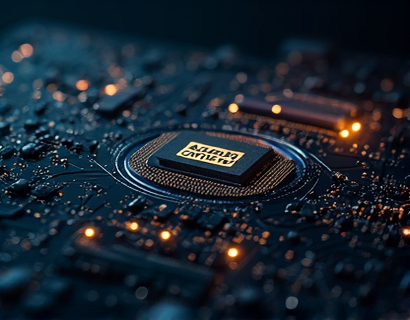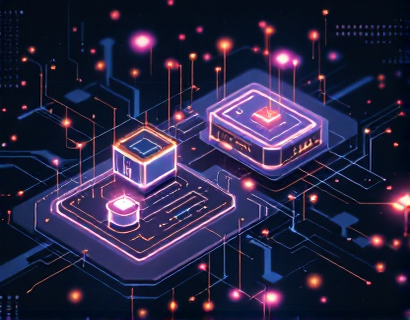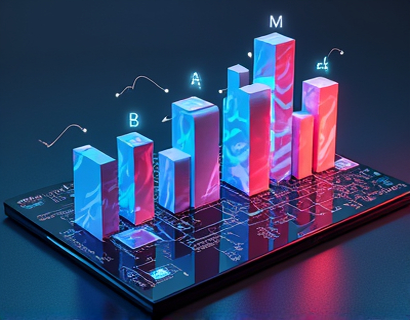Blockchain Oracle Management: Revolutionizing Decentralized Applications with Advanced Data Integration and Smart Contract Solutions
In the rapidly evolving landscape of blockchain technology, the role of oracle management has emerged as a critical component for the success of decentralized applications (dApps). Oracle management involves the integration of external data sources into blockchain networks, enabling smart contracts to access and utilize real-time data. This article delves into the advanced software solutions that are transforming oracle management, enhancing blockchain service access, and unlocking the full potential of decentralized applications. By focusing on data integration and smart contract capabilities, we explore how these innovations ensure secure and reliable interactions, paving the way for more robust and efficient dApps.
Understanding Oracle Management in Blockchain
Oracle management is the process of connecting smart contracts to external data sources, which can include APIs, databases, and other blockchain networks. These external data sources, known as oracles, play a vital role in providing smart contracts with the necessary information to execute their functions accurately. Without reliable oracles, smart contracts would lack the dynamic data inputs required to operate in a real-world context, limiting their utility and effectiveness.
The challenge with traditional oracle solutions lies in their vulnerability to single points of failure, latency, and security risks. Centralized oracles can be manipulated or compromised, leading to inaccurate data and potential security breaches. Decentralized oracle networks aim to address these issues by aggregating data from multiple sources, ensuring data integrity and reducing the risk of manipulation. However, managing these decentralized oracles efficiently remains a complex task, necessitating advanced software solutions.
Advanced Software Solutions for Oracle Management
To overcome the challenges associated with oracle management, innovative software solutions have been developed. These platforms focus on streamlining data integration, enhancing smart contract functionality, and ensuring secure and reliable interactions within decentralized applications. One such solution involves the use of decentralized oracle pools, where multiple oracles contribute data to a shared pool. This approach not only increases data reliability but also distributes the risk across multiple sources.
Another key feature of these advanced platforms is their ability to handle various data types, including structured and unstructured data. By supporting a wide range of data formats, these solutions enable smart contracts to interact with diverse external systems seamlessly. Additionally, they provide robust mechanisms for data validation and verification, ensuring that the information fed into smart contracts is accurate and trustworthy.
Data Integration and Real-Time Updates
One of the most significant advantages of advanced oracle management solutions is their capability to facilitate real-time data integration. Traditional oracle systems often suffer from latency issues, leading to delayed data updates and reduced smart contract responsiveness. Advanced platforms address this by implementing efficient data fetching and caching mechanisms, ensuring that smart contracts have access to the most up-to-date information.
For instance, these platforms can automatically refresh data at predefined intervals or trigger updates based on specific events. This dynamic data handling is crucial for applications that require timely information, such as decentralized finance (DeFi) protocols, predictive analytics, and real-time market data services. By reducing latency and improving data freshness, these solutions enhance the overall performance and user experience of decentralized applications.
Enhancing Smart Contract Functionality
Smart contracts are the backbone of decentralized applications, executing predefined logic based on input data. However, their capabilities are heavily dependent on the quality and reliability of the data provided by oracles. Advanced oracle management solutions elevate smart contract functionality by providing more accurate and diverse data inputs. This, in turn, enables the creation of more sophisticated and versatile smart contracts.
For example, in the realm of decentralized lending, accurate interest rate data is essential for determining loan terms and repayment schedules. By integrating reliable oracles, smart contracts can access real-time market data, adjust rates dynamically, and ensure fair and transparent transactions. Similarly, in supply chain management, precise tracking data can be used to verify the authenticity and movement of goods, enhancing trust and efficiency across the entire supply chain.
Security and Trust in Oracle Management
Security is a paramount concern in blockchain technology, and oracle management is no exception. Advanced software solutions prioritize security by implementing multi-layered protection mechanisms. These include encryption of data in transit and at rest, secure authentication protocols, and regular audits to identify and mitigate potential vulnerabilities.
Moreover, decentralized oracle networks enhance security through redundancy and consensus mechanisms. By aggregating data from multiple oracles, these networks can detect and discard anomalous or suspicious data points, reducing the risk of manipulation. This decentralized approach not only improves data integrity but also distributes the security burden across the network, making it more resilient to attacks.
Decentralized Oracle Networks
Decentralized oracle networks are a cornerstone of advanced oracle management solutions. These networks consist of a group of independent oracles that collaboratively provide data to smart contracts. Each oracle in the network votes on the accuracy and validity of the data, ensuring that only reliable information is used. This consensus-based approach minimizes the impact of any single faulty or malicious oracle.
One of the key benefits of decentralized oracle networks is their scalability. As the network grows, it can accommodate more oracles, increasing the diversity and reliability of data sources. This scalability is essential for supporting a wide range of applications, from small-scale projects to large, complex dApps. Additionally, decentralized networks can be easily expanded or modified to meet evolving requirements, providing flexibility and adaptability.
Use Cases and Applications
The applications of advanced oracle management solutions are vast and varied, spanning multiple industries and use cases. Here are some notable examples:
- Decentralized Finance (DeFi): Accurate and real-time data is crucial for DeFi protocols, including lending, borrowing, and yield farming. Advanced oracle management ensures that smart contracts have access to up-to-date market data, interest rates, and other financial metrics, enhancing the efficiency and reliability of DeFi services.
- Supply Chain Management: Tracking and verifying the movement of goods across global supply chains require precise and timely data. Oracle management solutions can integrate with IoT devices and other data sources to provide real-time tracking information, ensuring transparency and trust in the supply chain process.
- Predictive Analytics: Businesses can leverage real-time data from various sources to build predictive models and make data-driven decisions. Advanced oracle management enables the integration of diverse data streams, enhancing the accuracy and reliability of predictive analytics.
- Gaming and Virtual Worlds: In blockchain-based games, real-time data such as player statistics, in-game events, and virtual asset values are essential for creating immersive and fair gaming experiences. Oracle management solutions ensure that smart contracts have access to accurate and timely data, improving the overall gaming experience.
Challenges and Future Directions
Despite the numerous benefits, the adoption of advanced oracle management solutions faces several challenges. One of the primary concerns is the interoperability between different blockchain networks and external data sources. Ensuring seamless communication and data exchange requires standardized protocols and interfaces, which are still in the process of being developed and adopted widely.
Another challenge is the governance and incentive mechanisms within decentralized oracle networks. Balancing the interests of oracles, data providers, and application users is crucial for maintaining network integrity and motivation. Innovative tokenomics and governance models are being explored to address these issues and foster a collaborative ecosystem.
Looking ahead, the future of oracle management lies in the continued development of more sophisticated and user-friendly platforms. Integration with emerging technologies such as artificial intelligence and machine learning can further enhance data processing and analysis capabilities. Additionally, the growth of cross-chain interoperability will enable oracle networks to operate across multiple blockchains, expanding their reach and utility.
Conclusion
Advanced oracle management solutions are revolutionizing the way decentralized applications interact with external data sources. By addressing the challenges of data integration, security, and reliability, these platforms unlock the full potential of blockchain technology. For developers and businesses looking to harness the power of dApps, efficient oracle management is essential. Embracing these innovative solutions not only enhances the functionality and performance of decentralized applications but also paves the way for a more secure and trustworthy blockchain ecosystem.










































